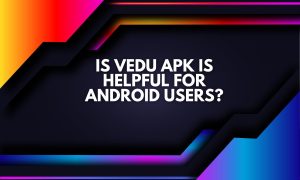Credit – Mondo
Many crypto enthusiasts are not strangers to the term “blockchain.” It’s only natural to want to understand what this term is about. Over the past few years, several industries have incorporated blockchain into different parts of their existing activities. Apart from its general application as a secure means for record-keeping, this vast technology also embodies several other use cases.
You must understand these uses. When you do it enough, you can easily factor certain decisions around them. Learning the diverse blockchain applications also helps you grasp their potential for several industries.
Join us as we dissect some of blockchain’s standard and proven uses and why that makes it an innovative technology in finance. Let’s go!
Table of Contents
ToggleWhat Is Blockchain?
First, understanding blockchain is vital to grasping how to use it fully. A blockchain is a publicly accessible distributed system between computer network nodes. It serves as a computerized server for recording and storing data digitally.
One popular application of blockchain technology is preserving a safe and decentralized history of transactions in cryptocurrency networks like Ethereum. The unique thing about a blockchain is that it encourages assurance without needing a reliable intermediary. This then ensures the integrity and safety of a data record.
How Blockchains Are Used
It’s common knowledge now that Bitcoin’s blockchain has blocks that contain information about financial transactions. As we speak, the blockchain houses thousands of additional cryptocurrency platforms. However, there’s a secure blockchain method to safely keep information regarding other transaction types.
Blockchain data analytics has helped businesses, including Meta, Walmart, Siemens, and Unilever, to name a few. The rise of blockchain in technology has also created a necessity for a number of positions, including blockchain consultants and developers, etc. In light of this, here are a couple of ways in which both individuals and companies use blockchain:
- Banking and Finance
The banking space is an industry that could benefit from integrating blockchain into its business activities. Banking institutions are only accessible within five days of the week. This reality makes specific processes, such as deposits, complicated to clear on weekends and after business hours. However, blockchain is different.
With blockchain, customers can expect the processing of their transactions in no time. Thanks to blockchain technology, banks can now safely and transfer the funds across companies quickly.
For instance, the stock trading industry’s clearance and reparation processes take three days. It can even take longer when worldwide trading is involved. During this time, there’s nowhere the cash and stock can go. Blockchain can reduce or even remove this reality.
- Currency
In the case of cryptocurrencies such as Bitcoin, the blockchain serves as the foundation. Blockchain makes it possible for cryptocurrencies like Ethereum to operate as decentralized platforms by dispersing their activities throughout a system of computers. This eliminates a lot of administrative and management fees while also reducing risk.
Furthermore, it acts as a provider to people in nations with weak monetary systems or currencies by offering them more robust, stable money with broader uses. This currency can also contain a more extensive circle of people they are in touch and can trade with locally and abroad.
For individuals who lack state identification, employing cryptocurrency wallets as checking accounts or financing options has a substantial influence. Certain countries may be embroiled in revolutionary unrest or have feeble government structures devoid of any real structure for issuing identities. There may be no easy accessibility to trading or checking accounts for the people of these countries, providing customers without a safe location to store their savings.
- Healthcare
Blockchain is applicable to medical practitioners to preserve their patients’ health histories safely. The capacity to upload a produced clinical notes on the blockchain and endorsed assures patients that no alterations can be made to the information. Private keys could be used to secure and store these confidential medical files on the blockchain to ensure that only selected individuals can obtain them, protecting the privacy of the data.
- Smart Contracts
You can facilitate, verify, or negotiate a contract agreement using a smart contract. This resource is a programmable code that professionals can add to the blockchain.. Users concur with a list of guidelines within which smart contracts function. Once these conditions are met, the contract’s conditions will be put into effect right away.
- Elections
Blockchain can facilitate a modern method of voting. Blockchain voting can end vote rigging and decrease apathy, as shown in the several elections in the past few years.
Vote rigging would be extremely difficult with blockchain technology. In addition to maintaining electoral transparency, the blockchain system will also reduce the amount of participants needed to conduct an election. It would also provide authorities with almost instant access to the results. This would reduce the necessity for recounts, and there would be no justifiable cause to be worried about election fraud.







